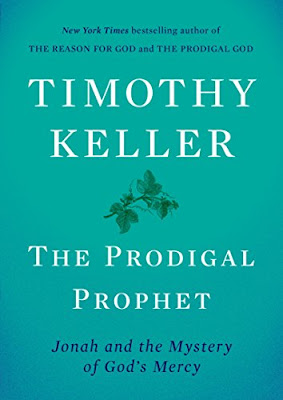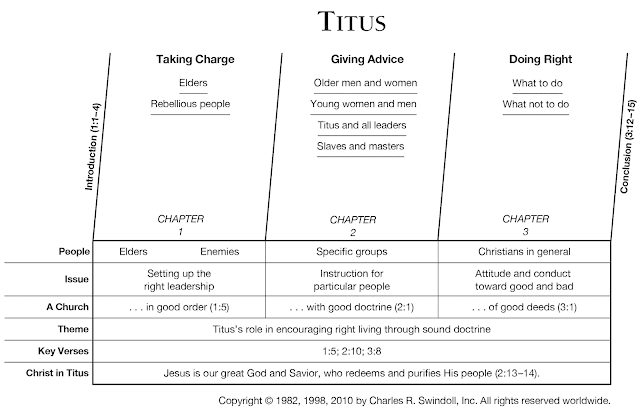This is my second time working through the book of Jonah since I began this blog. The first time was in April of 2014. Jonah is a mere four chapters in length, but worth spending several weeks upon if not more. This year, I've been pondering it since mid-to early-January. I think I'm about ready to move on, but I need to linger long enough to do due diligence to this "catch box" post of Jonah commentary and personal reflections.
I'll begin with background and observations on Jonah's call, Chapter 1:
Alexander MacLaren notes that this book might fit better among narrative books than amid the prophets in some regards, but he concludes that it is a prophetic book above all because it anticipates Israel's role and resistance with regard to God's grander vision for humanity. MacLaren believes Jonah is representative of the narrow nationalistic views of Israel. Ultimately, God's mercy will prevail above judgement, and Jonah was not a fan.
Charles Savell notes the author's use of the term "great": "As you probably know the Hebrew term gadol is used fourteen times in Jonah. We have a “great city” (1:2; 3:2, 3; 4:11), a “great wind” (1:4), a “great storm” (1:4, 12), a “great fear” (1:10, 16), a “great fish” (1:17), a “great” or important person (3:5, 7), a “great displeasure” (4:1), and a “great happiness” (4:6.). So often tell my students that Jonah is a “great” book." And, the literary skill of the author of Jonah is emphasized in my Bullock commentary.
On my first run through, I noticed the sudden and brisk pace of narrative. It reminds me of Mark--"just the facts, quickly presented." Jonah 1:1 declares that the word of God came to Jonah. And verse two reports the exact and concise imperative, "Arise, Go to Nineveh," or as the MSG translates "Up on your feet." Get off your butt and get at it would be an even more modern translation--there's no room for misunderstanding or delay.
J.O. Keen characterizes it as, "A summons to activity. Shake off dull sloth. Rouse thee from careless ease." He adds:
(1) The physical plays an important part in the execution of Divine purposes.
(2) The will too must give its sanction, or all the activities will be held in restful subjection. Where there is no will-power a man is a mere tool in the hands of others. -Keen
Bilbo Baggins comes to my mind--I think Jonah would have preferred to live in his hobbit home surrounded by the familiar.
 |
The story of the prodigal son crossed my mind multiple times while reading Jonah. Wish I had reviews. Maybe next time around. |
Jonah is directed to "go to Nineveh, that great city, and call out against it," and Keen notes the force of spirit such an emotional task would demand," To cry requires energy of soul; a vivid realization of sin, and moral courage." Such a great observation--confronting people is draining. A call from God to confront calls for a spirit of self-sacrifice and a willingness to be diverted.
Jonah's resistance is more complex than this though. Later we'll learn that his inner conflict was not born of laziness, fear of being ineffective or unheard. Nor was it a conflict born from misunderstanding the character of God or trusting in His abilities. He knew God's character and abilities--that's WHY he ran:
"He prayed to the LORD and said, "O LORD, is this not what I said when I was still in my country? That is why I ran to Tarshish, because I knew that You are a gracious and compassionate God, slow to anger and great in lovingkindness, and [when sinners turn to You] You revoke the [sentence of] disaster [against them]." Jonah 4:2 Amplified
Other commentators suggest he feared personal injury to his reputation if the people repented and his prophecy was undermined. This makes a bit more sense in context. Alistair Begg believes it's because the Israelites of this time were gaining ground against the Assyrians, and he didn't like the thought of them losing that type of dominion or of them gaining ground against Israel, even through repentance.
Although this doesn't tease all the reasons out, it definitely differs from what I would imagine would be my own concerns being placed in this situation. Would I be mad at God's mercy to others? The Jews certainly were when Jesus walked the earth. Maybe we overestimate our care for others or our own holiness. Alistair Begg suggests, "Because we’re so proud, we think we deserve to be saved. We don’t realize how ugly and willful and defiant we are. And if we understood how wretched we really are, then we would realize that there is no reason under heaven why all these pagan, defiant, apparently distasteful individuals should not be the recipients of the message of mercy in judgment." Maybe we do elevate ourselves and elevate the sin of others, and this is part of the problem.
Another question of mine concerned the meaning of the phrase, "for their evil has come up before me.” This sense of separation between God and man doesn't make sense if God is omnipresence and omniscient--it's got to come down to textual nuances is my guess. BKC clarifies the meaning of the phrase as "that is, the people were relentless and persistent in their sins."
Here is even more context about Nineveh's spiritual state:
"The Assyrian king acknowledged that his people’s ways were “evil” and characterized by “violence” (Jon_3:8). And they were “carefree” (Zep_2:15), thinking themselves invincible. The Prophet Nahum wrote about several of their crimes (Nah_3:1, Nah_3:4, Nah_3:16). Nineveh was well known in the ancient Near East for the brutal atrocities it inflicted on its war captives. (For more on Nineveh’s brutalities, see the Introduction to Nahum.) This city was also known for its idolatry; it had temples dedicated to the gods Nabu, Asshur, and Adad; the Ninevites also worshiped Ishtar, a goddess of love and war." -BKC
So I think it's less God lacked awareness, but more that the cup of wrath and sin was over brimming, touching upon God's desire for justice.
Again, the narrator wastes no time or words in verse 3, "But Jonah." He's fleeing from God's presence, but we know this is impossible (Ps 139)--what does he hope to accomplish?
Another answer from Alexander MacLaren:
"We need not suppose that Jonah thought that he could actually get away from God’s presence. Possibly he believed in a special presence of God in the land of Israel, or, more probably, the phrase means to escape from service."
I suppose it's easy to forget that Jonah and his culture's perception of God was limited by preconceptions, just as our own. We don't fully "get" God. And there are aspects we "get" but push away not even understanding fully the push. In this culture, there were gods of cities and specific areas, so it seems possible Jonah's flight operated under this geographically specific understanding of God's dominion. Maybe he thought he could escape or maybe he just wanted out no matter what that looked like. Alistair Begg alludes to Adam & Eve's desire to hide from God in the garden as equally illogical, born of fear.
Thinking more about the geography, Jonah is from southern Galilee, the son of Amittai, from the tribe of Zebulon. The Expositor's Bible observes that the Jews were an inland people emerging from many years in the desert. Unlike the Phoenicians, they were not seafaring by nature or design. Going to Joppa, a pagan country and putting water between Jonah and God was a rebellious statement of just how far Jonah wished to distance himself from God's plans.
As an aside, I found this blog entry on Joppa interesting: The Harbor at Joppa, Ferrell's Travel Blog. I find it helpful to connect with the real world geography, archelogy, and culture of the Bible, and this blog makes an effort to do just that.
On Jonah's decision to go to sea, MacLaren comments, "The Jews were no sailors, and the choice of the sea as means of escape indicates the obstinacy of determination in Jonah." lol.
The brisk pace of narrative continues with God's response which is a quick repetition of Jonah's "but Jonah,"-- v4 "But the Lord..." This is a chess match, point and counterpoint. And although I don't wish for Jonah's defiance, I admittedly admire his close wrestling match with God. My own struggles often feel more distant in nature.
Another thing I questioned was why Jonah was sleeping instead of being awake and praying. The pagan sailors demonstrate much greater common sense and action in this dire situation. They may not call on the correct god, but they know enough to call.
R.A. Redford suggests that Jonah sleeps as a response to great stress and turmoil, "the sleep into which the prophet fell instantly that he went down into the ship is quite consistent with a state of perplexity and fear. He was so wearied with the mental strain and struggle, so burdened with the weight of a reproachful conscience, that he gladly hid himself from the faces of his fellow-men, and sought the darkness and solitude of his sleeping place, where nature asserted its demands, and he was soon wrapt in unconsciousness."
Alistair Begg also adopts this perspective, "Presumably, he’s physically and spiritually worn out by his experience. Disobedience is draining, in the end. Haven’t you found that? Disobedience is only exhilarating for the moment. It only gives you a momentary buzz. But it is enervating, not energizing. Disobedience is only exhilarating for the moment. It only gives you a momentary buzz. It is enervating, not energizing."
Looking into the wording and expression "fast asleep," maybe the text does suggest this reason:
Hebrew: râdam, raw-dam'
A primitive root; to stun, that is, stupefy (with sleep or death): - (be fast a-, be in a deep, cast into a dead, that) sleep (-er, -eth). Total KJV occurrences: 7 (Strong's) I looked it up more fully here.









